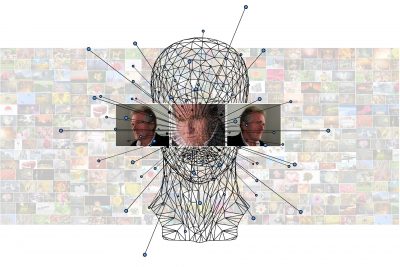“Everyone thinks of changing the world,
but no one thinks of changing himself”
(Leo Tolstoy)Welcome to the era of ‘new competences’
According to the OECD Survey of Adult Skills (OECD 2015), more that 25% of adult workers are reporting divergences between their skills and the qualifications required for their current job. However, dynamic social and economic changes and global technological innovations generate the demand for new individual capacities.
Have you been thinking what are the new competences that would allow to effectively deal with uncertainties and complexities of the world?
Acquire new competences and become Futures Literate
The idea of this online course in Futures Literacy is to enhance competences that would help you better deal with the future challenges and support you in navigating the future in both, personal and professional dimension.
Based on the results of the literature review and the online survey we executed among academics, university students and business representatives; these are the following competences:

Each lesson in our e-learning course refers to a set of the above competences, which enhance your future orientation.
Becoming Futures Literate
We want you to become futures literate. It means that we want you to learn how to think and speak about the many possible futures. We offer you to learn new ways and methods of discovering signals of the future in the present. We encourage you to try out different perspectives or imagine many possible implications of certain global developments. We want to show you how others use the future (organizations, governments, individuals).
Our dream is that you use these images and stories of the future as a springboard. We wish that you discuss these ideas and your thoughts on future developments with others. We believe that if you let yourself be inspired by the stories encapsulated in each module of the course, you may refresh and re-frame your opinion on the future and how it can be shaped. By you, individually or by all of us, collectively.
Futures Literacy is important today
The future is active in our daily lives. We use it all of the time to plan, act, avoid, and do. Improving our skills in futures literacy involves becoming aware of how we are using the future and diversifying the ways we do so. As we become better at using the future in different ways for different purposes, we develop skills in appreciating change, nuance and new emerging potentialities.
Summing up: the futures we imagine dictate the potentials we see in the present.
Target groups of the online course in Futures Literacy
The overall course-objective is to give you an overview of the field so you can use the ideas, mental-models and tools and become a futures literate entrepreneur, manager, university teacher, lecturer or a student. We aim to promote futures thinking skills and proactive attitudes among the target groups while they design their future career paths; conceptualize their future research projects or consider future business opportunities.
All in all, we aim to increase appetite for further futures knowledge and long term thinking practices among project target groups and to increase awareness of their impact on the future even in the face of uncertainty and change.
The design of the online course in Futures Literacy
The course is composed of 7 modules, in which you will learn about concepts related to futures literacy; futures studies and the practice of foresight. There are four basic modules (1-4) and three advanced modules (5-7). Each module is composed of a number of lessons and topics.
- Module 1 gives a first overview of what it means to work with the concept of future. It introduces the professional field of futures studies and the practice of foresight. It encourages to reflect on your own views of the future.
- Module 2 connects futures thinking and foresight activities with sustainable development. It inspires to apply systems thinking in professional lives and provides examples of foresight applications in business, science and policy.
- Module 3 guides you through selected and most popular foresight methods. The theoretical description of the methods is followed by practical case studies.
- Module 4 proposes tools and methods for clear and effective communication and exploitation of futures studies results. Also, it shows how to foster change management and future oriented culture in organizations.
- Module 5 shows how foresight concepts and methods can support people in building their future career paths taking into consideration two different work domains: research and entrepreneurship.
- Module 6 revolves around the epistemological, methodological and philosophical aspects of Futures Studies. Besides the theory it also showcases practical examples and templates for teaching or trying out the approaches learned.
- Module 7 helps to understand how to create a future-ready organization with the use of business foresight. It contains topics related to start-ups creation, prototyping, evaluating and validating organisational business models.

Duration and learning paths
We recommend that you start with the basic modules and only then move on to the advanced part of the course. However, the access to all the modules, lessons and topics is unlimited; which means that you can design your learning path on your own as you go. The length of each topic (in minutes) is given in its introduction. Basic course takes approx. 18 hours (4h-6h-4h-4h); while the advanced course takes approx. 20 hours (8h-6h-6h) in total.
Keep up and write about your experience
To keep up and learn – we recommend that you keep a learning diary. You can do this by recording your progress in an analog notebook or use an online diary such as … (https://penzu.com/ or a google-doc such as: https://docs.google.com/document/d/1N_FPIoPOvK5UsUADJaqEhBLT8Of-Plxc278R9FtDVVQ/edit
We prepared one for you, that you can copy to where ever you may want
To do this course and stay tuned until the end, we do encourage you to get together with others – classmates, colleagues, family, friends or get connected online with like-minded people for example via linkedin.
“Success in the 21st century will not be found in creative solutions to old problems.
Success will be shaped by the imaginations of those who dare to construct new worlds that embrace the change around us
and have the power to make the strange, the daring, and the revolutionary familiar “
(Thomas & Seely Brown 2001)For data protection reasons there is no forum on this platform but you can join us via Social Media
IT’S TIME TO BECOME FUTURES LITERATE!

Module 1 Basic: Your first Date with the Futures
Receive a basic understanding of the field and its usefulness in the various areas. Comprehend that future can become a tool changing its application with the perspective and perception one takes on.

Module 2 Basic: Background and Context
Understand the positive role of foresight in navigating complex problems and finding solutions that will lead to the development of new and sustainable futures.

Module 3 Basic: Methodology and Terminology
Understand how to conduct futures studies activities by exploiting the most important methods and approaches.

Module 4 Basic: Application and Implementation
Tools and methods to exploit for clearly and effectively communicate futures studies results to different audiences and organizations.

Module 5 Advanced: Foresight in Learning and Practice
In this module we introduce you to the importance that Foresight concepts and methods can have in respect to supporting people in building future career paths.
Learning paths.
In addition to the above course modules we have prepared four learning paths specifically designed for the policy makers, academics, students and entrepreneurs. Those learning paths contains several lessons and topics from basic and advanced modules. If you want to take such a learning path you will be rewarded with a certificate at the end of it.

Learning path policy maker
You will be able to understand current and future global challenges and trends and learn about quantitative and qualitative methods to analyse them. Apply futures thinking and access case studies for foresight application in policy-making.

Learning path academic
You will be able to get an overview on approaches and methodologies used in Futures Studies and Strategic Foresight. Learn about how to apply anticipatory methods in modern entrepreneurship. Get an insight how to structure, organize, and evaluate relevant future oriented information.

Learning path entrepreneur
You will be able to apply practical tools and methods that will support you in the process of strategic decision making, less prone to biases and beyond simple trend extrapolations. You will become more aware of previously unrecognized threats and opportunities.

Learning path student
You will be able to apply tools and methods to get insights into futures and new skills to spot and exploit potential career opportunities. Use methodologies to understand trends and megatrends in social, economic and technological developments and how they could impact on your organization (current or future). Understand how cognitive biases can affect your future career decisions and to learn about system analysis in order to better understand the complex nature of the labour market.

Project co-funded by the Erasmus+ program of the European Union.
beFORE is a Knowledge Alliance Project (575842-EPP- 1-2016- 1-PL- EPPKA2-KA). This project has been funded with support from the European Commission. This website reflects the views only of the author, and the Commission cannot be held responsible for any use which may be made of the information contained therein.


